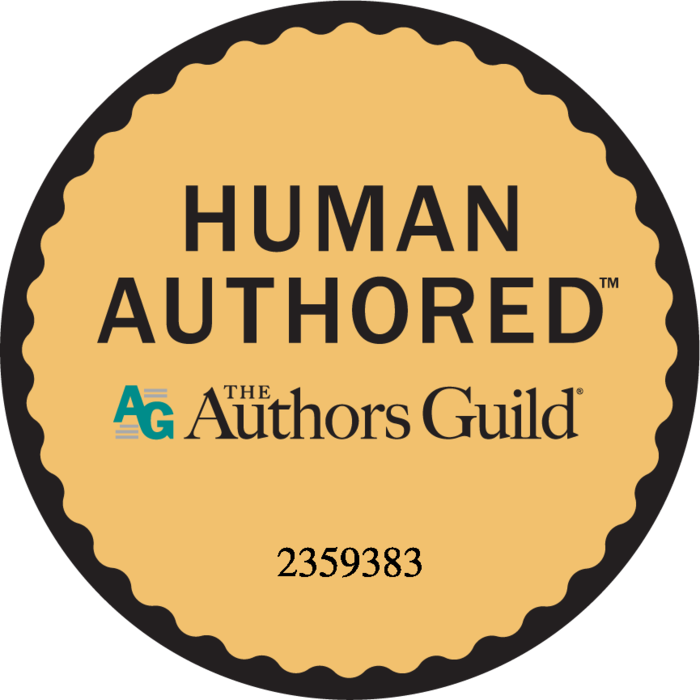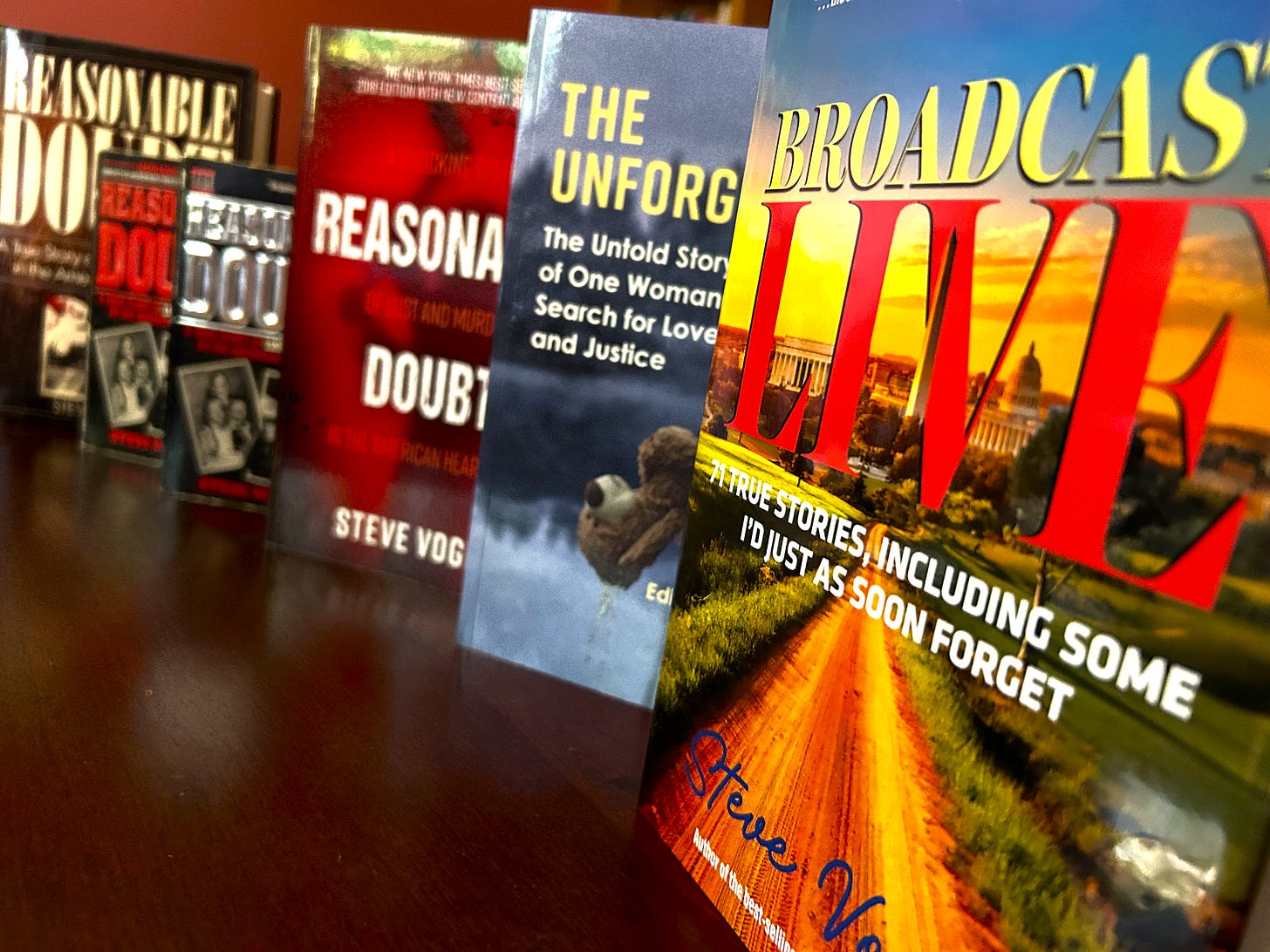AI and "Broadcast Live"
This seal appears near the front of my new memoir, Broadcast Live: 71 true stories, including some I’d just as soon forget, being published two weeks from today.
As a member of the Authors Guild, I’m certifying that my book was created by a human (that’s me), that the text was not generated by artificial intelligence.
(Go ahead, say it: It’s painfully obvious that no trace of any kind of intelligence went into creation of this book. But could we save that judgment until after you’ve read it, please?)
Seriously folks, the Authors Guild came up with this certification mark with a unique registration number tied to my book so readers who buy or borrow it can be confident what they’re about to read was “human authored.”
AI can’t think or feel or empathize—at least not yet. But its rapid evolution demands our attention on a couple of creative fronts, as expressed by the Authors Guild:
“Human communities are bound together by culture—literature, art, music, and other forms of expression. The rise of AI necessitates legal and policy interventions that balance development of useful AI technologies while ensuring that human authorship is protected. We need to ensure that human creators are compensated, not just for the sake of the creators, but so our books and arts continue to reflect both our real and imagined experiences, open our minds, teach us new ways of thinking, and move us forward as a society, rather than rehash old ideas.“
The Authors Guild has sued OpenAI for copyright infringement on behalf of novelists including John Grisham, George Saunders and Jodi Picoult, saying it trains its system by copying creative works without permission or payment.
At a Wall Street Journal conference in London, author, historian and philosopher Yuval Noah Harari said that for the first time, we humans have real competition.
“We have been the most intelligent species by far for tens of thousands of years,” he said, “and this is how we got from being an insignificant ape in the corner of Africa to being the absolute rulers of the planet and of the ecosystem. And now we are creating something that could compete with us in the very near future.”
He said previous inventions like the printing press were tools that empower us. AI, he said, is not a tool, it’s an agent “in the sense that it can make decisions independently of us. It can invent new ideas. It can learn and change by itself.”
If I provided an AI site the text of Broadcast Live and asked it to rewrite the book in the style of Twain or Hemingway or David Foster Wallace, it would do it in a flash.
And then if I told it to delete and forget everything I had entered so my material couldn’t feed machine learning, I suspect it wouldn’t.
I see there are doctors now willing to let AI do robotic surgery. Hands off my books (and gallbladder), please.
But thanks for reading!



